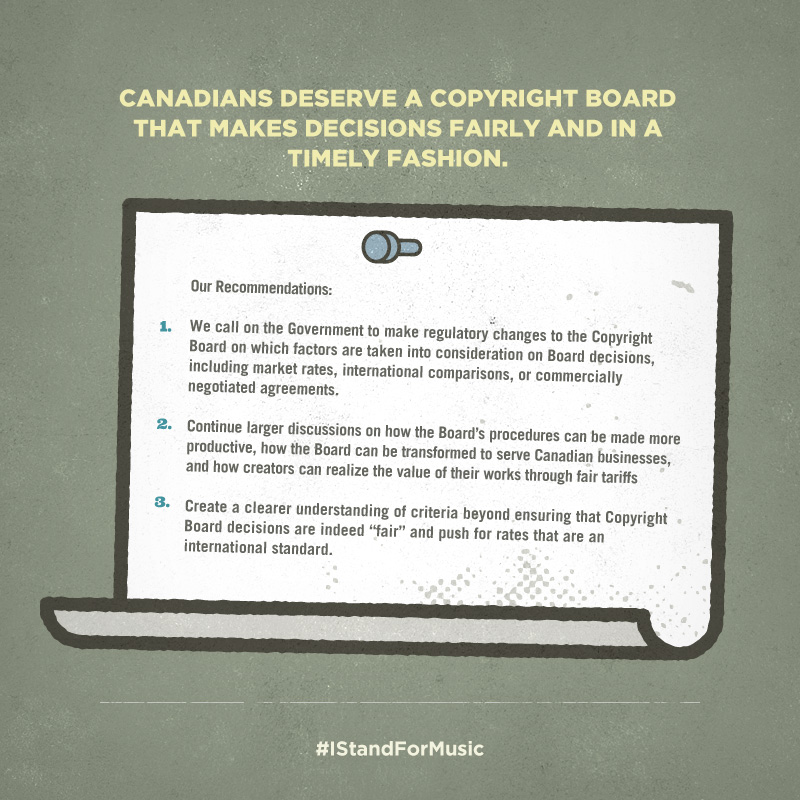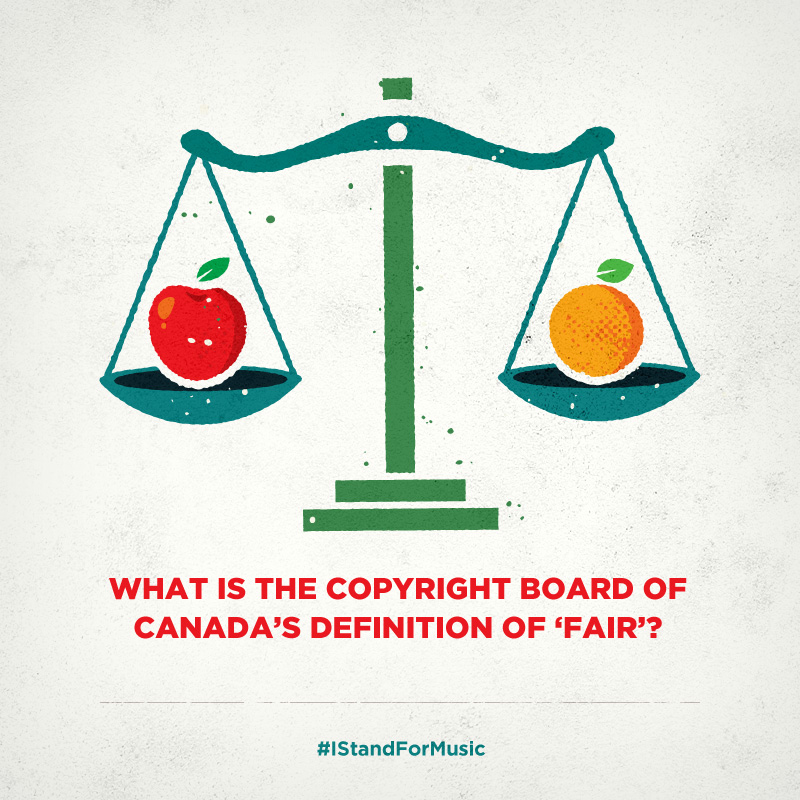Paying artists a fraction of what their music is worth is not okay.
On Wednesday, February 24 our colleagues from Re:Sound will take the Copyright Board’s Tariff 8 ruling to the Federal Court of Appeal as they continue to fight against low streaming royalty rates. The court is judicially reviewing the Copyright Board’s decision from May 2014 that gave artists the incredibly low rate of 0.000102 per play on some digital streaming services.
Tariff 8 is disastrous for two important reasons:
- The Copyright Board threw out commercially negotiated rates – where the marketplace of ‘willing seller and willing buyer’ decided what was
- The Copyright Board set a rate approximately 10% of what was freely negotiated in the marketplace and a rate that is less than 10% of comparable US rates.
What does this mean in practical terms?
Said another way, it means that real people can’t make a living. The musicians and artists who work every day to make music in Canada are going to be even more impoverished and not paid fairly for the use of their work. According to a study by CIMA, the average income of a Canadian musician is only $7,228 per year from music-related activities.
The reality in the market is that sales of CDs and even downloads are declining, while music streaming is on the rise. That’s why it is so important that artists are fairly compensated for their work in the context of web-based services.
Streaming services demonstrate innovation in the music industry. The music industry is going into new spaces and doing things differently in light of a rapidly changing marketplace. But innovation only goes so far. The Board is at the heart of the problem for music creators. It continues to set rates based on antiquated ideas that have no place in the current music landscape.
It took them six years to set Tariff 8 and they continue to move at a glacial pace on issues of critical importance to Canada’s economy. Urgent action is needed to change the Copyright Board.
Tariff 8 sets the standard for streaming rates going forward. So, while some may argue that services such as CBC Music, Stingray, and Slacker aren’t an artist’s only source of income or that this is only for some streaming services, the rates are appallingly low.
Artists deserve to be fairly compensated for their music. The Tariff 8 decision sends a message that music is not properly valued as a profession here, and this message is completely inconsistent with Canadian values.
The people whom we elect to solve these problems know all about the issues at the Copyright Board. In 2014, right after the Tariff 8 decision was released, the Standing Committee on Canadian Heritage released a report on the Canadian Music Industry. In fact, their #1 recommendation in their study was figure out how to make changes to it.
Minister Dion, at the time was so frustrated with the issues at the Copyright Board that he said that there is an urgent need for action and that, “the government and the Board would be perfectly able to fix things in the coming months if they only started now.”
We agree, Minister Dion. We are supporting Re:Sound this week as they fight the Copyright Board’s Tariff 8 decision which has disastrous implications for the future of music in Canada.
We remain committed to this important issue, and to working with government on fixing the problems at the Copyright Board so this doesn’t happen again.








Music Canada